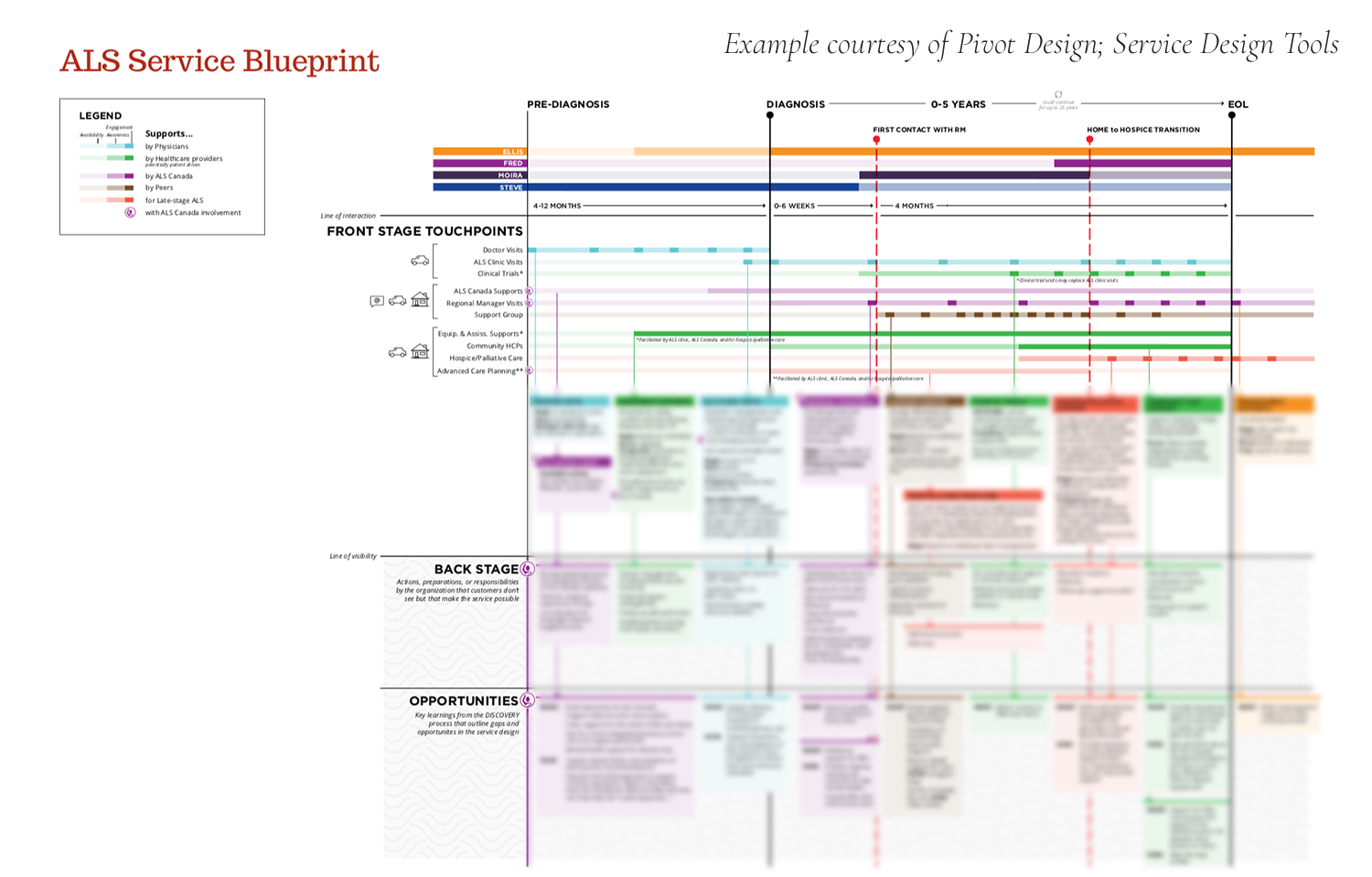



In recent years, we've transitioned from a product-centric world to one that's service-centric. The focus has moved from providing simple, isolated transactions to creating integrated experiences, spread across multiple touchpoints with customers.
While effective product design remains vital, more and more it's the services wrapped around them that offer extra differentiation and value.
For example, where once we bought a song for 99p, today we pay £10 a month to stream a vast, constantly updating library of music which comes with added experiences, like personalised recommendations and the ability to share songs with friends.
Customer expectations have changed. As we value experiences more and more, it's important to differentiate and create more integrated, holistic experiences.
It's extremely useful to map experiences and blueprint how services are delivered. They let us picture the entire service lifecycle — both in terms of how customers interact and what happens behind-the-scenes.
This lets us analyse, generate and improve the way you deliver value to customers: bridging the gap between business strategy and stakeholder needs, preferences and expectations.